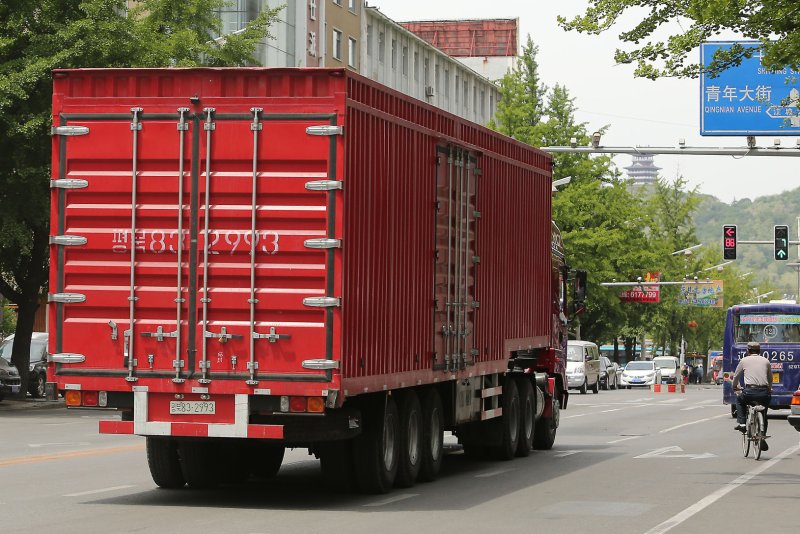North Korea’s dependency on trade has increased since 2010, a South Korean economist said Friday. File Photo by Stephen Shaver/UPI |
License Photo
April 13 (UPI) -- International sanctions against North Korea might have played the principal role in pushing the regime to seek a way out of isolation, according to a South Korean economist.
While statistics about the North Korean economy are rarely available, Seoul's central bank estimates North Korea's economy grew by 3.9 percent in 2016, South Korean newspaper Herald Business reported Friday.
According to Bank of Korea estimates, that rate is the highest in 17 years, or since North Korea emerged from a famine that may have led to the deaths of millions of North Koreans.
Kim Byung-yeon, a professor of economics at Seoul National University, said the sanctions have played a role in creating a "dilemma" for Kim Jong Un, who seeks to bolster his legitimacy through the military and the economy.
"There are three reasons for the growth in the North Korean economy," Kim Byung-yeon said. "Trade and markets, and the tacit approval of the government of markets."
But the North Korean leader faces a dilemma, because of his nuclear weapons program, the South Korean analyst said.
The nuclear weapons are believed to bolster his rule, but they have also led to sanctions that are hampering the North Korean economy.
"Because North Korea is a closed socialist economy, there are those who assume sanctions are ineffective, citing North Korea's low dependency on trade," Kim said. "But the amount of trade North Korea conducts with the outside world as a portion of GDP has greatly increased since 2010."
The economist added North Korea's trade dependency reached as high as 52 percent of GDP in 2014, approaching 60 percent, the world average.
Agricultural production has also increased by 20 percent since land reforms in 2012, according to the Herald, and about 450 semi-private markets were operating legally in North Korea in 2016.
The United States has pursued and implemented unilateral sanctions against Chinese banks suspected of dealing with North Korea, but the U.S. Department of Treasury was careful to avoid sanctioning more powerful banks, Bloomberg reported Friday.
The report states U.S. officials, concerned about instability, considered but ultimately decided against blacklisting Ag Bank and China Construction Bank, and instead sanctioned two small banks in China and Latvia.
AgBank and China Construction are the third- and fourth-largest of China's Big Four banks.















